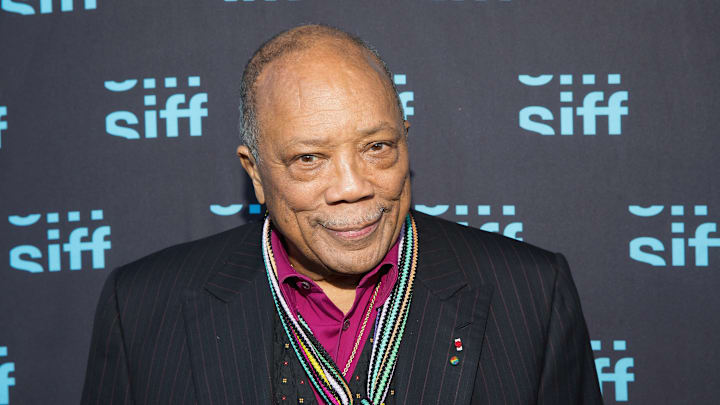While calling someone an "original" is almost always hyperbole, the word is true when it comes to Quincy Jones. The icon passed away on Saturday (November 3) at his home in Bel-Air, California. He was 91 years old.
In his historic and very long career, Jones helped push the careers of many musical artists forward. He helped Michael Jackson make Thriller, and he collaborated with Frank Sinatra, Will Smith, Ray Charles, and Billie Holiday, among many others. He had his own entertainment company not only for music but television and film as well. He was an extremely smart businessman, but his real gift was that he knew what made for good music and what did not.
He started his record company, Qwest Productions, in 1975. He did this in part because he had already produced and conducted on a number of highly successful jazz albums, included several by Frank Sinatra. But by the late 1970s, Jones knew a good pop hook when he heard it as well.
New Order benefitted from the work they did with Quincy Jones
He also knew how that just because a style of music was not something he did not normally work with that did not make the sound bad. Such was the case with New Order. The Manchester band changed their name from post-punk giants Joy Division after the death of Ian Curtis, but there was enough talent in Joy Division that New Order was likely to be a success.
That did not mean the band would be successful in the United States, though. New Order had post-punk origins, but also began to create a music that was extremely danceable through the use of sequencers. This kept the music extremely structured, but with a pounding pulse that people could groove too. In other words, while New Order wasn't really pop, they shared some of the same sensibilities as Michael Jackson.
Jones had produced Jackson's first album, Off the Wall, in 1979. He also produced Thriller, the biggest selling album of all time, in 1982. Jones did not produce New Order, but he appreciated them enough to sign them to Qwest Productions so that the band had a bigger audience in America.
After Jones' death, New Order bassist (and icon in his own right) Peter Hook posted his thoughts about Jones on social media. On X/Twitter, he wrote, "It’s so sad to hear about Quincy Jones. When he signed us to his label, he made us feel so welcome - inviting us to dinner at his home every time we were in town. He made us big in America."
And to this day I still got a lovely message from him every year on Christmas and birthday cards! A musical genius and a great, lovely man. He will be sorely missed. RIP.
— Peter Hook (@peterhook) November 4, 2024
Hook did not stop at just Jones helping the band, though. He made sure that people understood Jones was a good guy as well. He added, "He was so humble & sweet that you immediately fell in love with him. And to this day I still got a lovely message from him every year on Christmas and birthday cards! A musical genius and a great, lovely man."
While Jones did not produce New Order, he did remix "Blue Monday" in 1988 into a tune called "Blue Monday 1988." The remix reached number three on the UK charts. That was two spots better than the original did in 1983.
